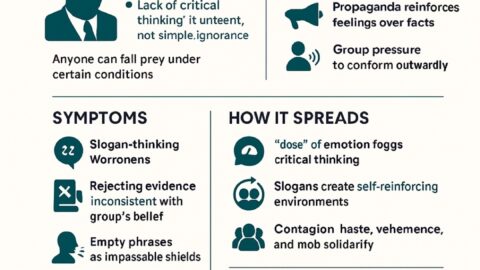Adultery & Divorce: Its Impact on the Journey of Growth in Marriage and Parenthood
Adultery and divorce are some of the most painful and disruptive experiences in marriage and parenthood. Like sudden, violent storms that damage a garden or uproot the growth of a plant, adultery and divorce can have profound, lasting effects on individuals, relationships, and families. They disrupt the process of nurturing, building, and cultivating long-term growth in a marriage and the healthy development of children.
In both marriage and parenthood, these experiences can have lasting emotional, psychological, and relational consequences. Understanding the impact of these experiences in terms of growth, healing, and recovery is essential to help individuals and families move forward.
The Impact of Adultery on Marriage Growth
Adultery strikes at the core of trust and commitment in a marriage, which are foundational to growth and development. Just as a garden depends on the consistent care of its gardener, a marriage relies on mutual trust, loyalty, and respect. When one partner betrays the other through infidelity, the effects can be devastating and may stop the growth of the relationship.
How Adultery Disrupts Marital Growth:
- Breakdown of Trust: Trust is like water to a plant—it is essential for growth. Adultery erodes this trust, leaving the relationship vulnerable and uncertain. Without trust, intimacy and connection may diminish, making it hard to rebuild a strong foundation.
- Emotional Damage: The betrayal experienced through adultery can leave deep emotional scars. Feelings of hurt, anger, humiliation, and self-doubt often follow. Rebuilding the emotional bond becomes an incredibly difficult task.
- Loss of Shared Vision: When infidelity occurs, the couple’s shared dreams and plans for the future may shatter. There is a risk that the future of the marriage, like the harvest, will not materialize as once hoped.
Rebuilding After Adultery:
- Restoring Trust: Healing requires time, honesty, and vulnerability. Both partners must be willing to work through the emotional damage and rebuild trust.
- Recommitment to the Relationship: Adultery does not necessarily mean the end of a marriage, but both partners need to recommit to the relationship and work hard to restore the connection.
- Therapy and Counseling: Professional help can guide couples through this painful process, helping them process emotions, rebuild trust, and redefine their relationship.
Adultery’s Impact on Parenthood and Family Growth
The consequences of adultery extend beyond the marriage to the children. A parent’s infidelity can create emotional turmoil, confusion, and a fractured family dynamic. Children often feel caught in the middle, especially if the infidelity is uncovered or the parents choose to divorce.
How Adultery Affects Children and Parenting:
- Emotional Turmoil: Children can experience feelings of betrayal, guilt, anger, and confusion when they learn about one parent’s infidelity. They may wonder if they are somehow responsible for the break in the family.
- Instability in the Home: The betrayal of trust in the marriage can lead to instability in the home, with potential disruptions in routines, living arrangements, and emotional security.
- Modeling Unhealthy Relationships: Children may struggle with forming healthy relationships themselves if they witness betrayal, dishonesty, and emotional turmoil. This can lead to difficulties with trust and commitment in their own future relationships.
Healing the Family After Adultery:
- Communication and Transparency: It’s essential for parents to communicate openly with children, in an age-appropriate way, about what has happened. Reassuring children of their love and stability can help them navigate the emotional storm.
- Maintaining a Positive Co-Parenting Relationship: If the marriage ends due to adultery, maintaining a respectful, cooperative co-parenting relationship can provide children with the stability they need.
- Seeking Professional Guidance: Family therapy and counseling can help both parents and children process the emotional fallout of adultery and learn how to move forward in a healthy manner.
The Impact of Divorce on Marriage Growth
Divorce is a challenging and painful process that disrupts the journey of growth in marriage. When a couple decides to part ways, it can feel like the destruction of the seeds that were once planted. The years spent building the relationship may feel like they’ve been erased, but it’s important to remember that divorce, though painful, doesn’t erase the potential for personal and relational growth.
How Divorce Disrupts Marital Growth:
- End of Shared Growth: Divorce marks the end of shared growth and mutual support in a marriage. Both partners must now navigate life independently, and the growth they once experienced together may stall.
- Emotional and Financial Turmoil: Divorce often brings emotional upheaval, including grief, anger, frustration, and sadness. Financial and logistical burdens may also complicate the healing process.
- Dissolution of Family Unity: Divorce can fracture family unity. Children may feel torn between parents, and extended family relationships may also change or dissolve.
The Long-Term Impact of Adultery and Divorce on Parenthood
Adultery and divorce can leave lasting scars on children, but they also present opportunities for growth, resilience, and understanding. How children cope with these challenges depends on the support they receive from their parents and the broader family network.
Effects on Children:
- Emotional and Behavioral Issues: Children may experience depression, anxiety, or anger as a result of a parent’s infidelity or the divorce. They might also exhibit behavioral issues like acting out or withdrawing.
- Distrust in Relationships: Seeing their parents’ relationship crumble can lead children to have a more cynical or distrustful view of relationships and marriage.
- Developing Resilience: Despite the emotional challenges, many children grow resilient as they navigate these hardships. They may develop a deeper sense of empathy, maturity, and understanding.
Parenting Through Divorce and Adultery:
- Prioritizing Emotional Well-Being: Parents must prioritize the emotional well-being of their children by providing them with reassurance, open communication, and stable routines.
- Modeling Healthy Relationships: Even after divorce, parents can model healthy, respectful relationships with each other and with others, showing children how to build trust, communicate effectively, and handle conflict constructively.
- Therapy and Support: Professional help can guide children through their emotions and help them process their feelings in a safe, supportive environment.
Final Thoughts
Adultery and divorce are powerful disruptions to the journey of growth in marriage and parenthood.






